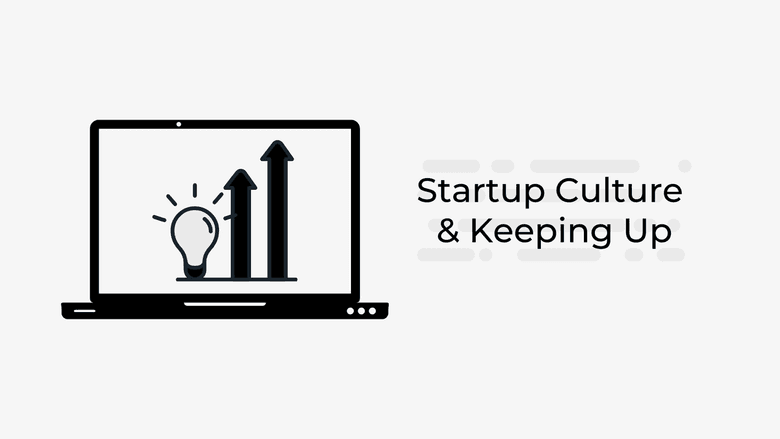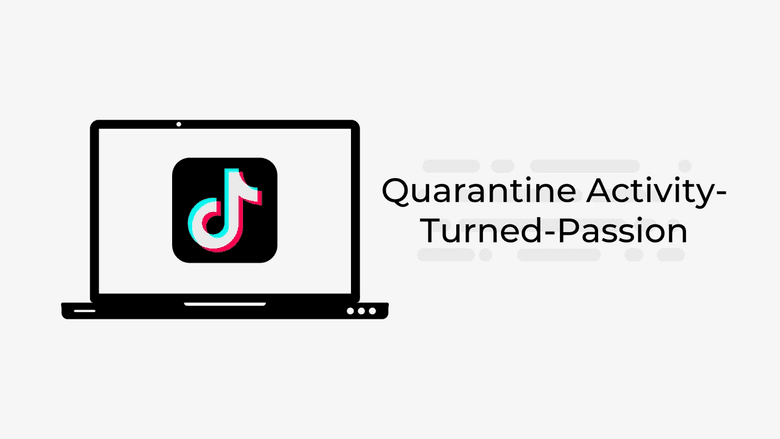Jerry Chen: Switching Paths and Trying it Out
Taking a chance on different careers and finding the right one for you

Over the course of his career, Jerry Chen has mastered the ability to change career paths at the turn of a foot. Perhaps, his biggest pivot was his decision to pursue software engineering.
Today, Chen is a full-stack engineer at Capital Rx, a startup pharmacy benefit manager (PBM). His path to where he is today included some bumps along the way. It took Chen a lot of time, thought and exploration of different positions to understand what he wanted out of his career.
Before software engineering, Chen studied information systems at Rutgers University. In this program, he got a full grasp on databases and got some experience with coding by taking other computer science classes.
After graduation, Chen entered into an analyst position at a legal support services company. He worked there for about two years when he realized he was dissatisfied with the work.

“I got bored one day, so I was like “how do I advance my career.” I was looking into stuff related to databases and I didn't really want to fully go into data and data stuff. So I was like ‘okay, I need to go into software engineering,’” Chen said.
Knowing he wanted to make the switch, Chen quit his job and decided to participate in a Hack Reactor coding bootcamp.
The three-month program requires participants to spend approximately 12 hours a day Monday through Saturday learning and practicing coding. Each week is finished with a test to see how participants are progressing.
The program is a little cutthroat: participants had to show their success each week, otherwise they could be cut from the program. Chen said he used this as a measure for his own success and to decide whether the profession was right for him.
Though this task would seem daunting to most, support from family members put Chen's mind at ease while pursuing the switch.
“I'm fortunate enough to have my parents and my siblings [who] helped me out so it wasn't that scary for me to drop everything because I had people back me up,” Chen said.
Following his success in the program, Chen spent a couple months searching for a job. During this time, he said he received hundreds of rejections before finding the right place for him.
Chen’s first position out of the boot camp was at Consumer Reports, a nonprofit consumer organization, as a software engineer. After a little over a year-and-a-half there, Chen was ready for yet another switch and the search began again.

Almost a year ago, Chen started in his current position at Capital Rx as a full-stack engineer. In this role, he deals with both the front-end of the platform, which is everything consumers will see on a webpage, and the back-end, which includes dealing with servers, databases and more.
This position was a change of pace for Chen. He went from Consumer Reports, an established corporate company to Capital Rx, a startup.

“You know the grass is always greener on the other side I’ll tell you that much. That saying has never rang more true since I've switched from a nice corporate organization to a startup,” said Chen. “Startups are hectic, [and] stuff is changing all the time.”
Chen didn’t get much in-person interaction when he first started at Capital Rx due to the COVID-19 pandemic. In fact, he started at the New York-based company in February, about a month before the city shut down. However, he doesn’t mind the remote work and actually hopes to see more remote work post-COVID.
On a typical day, Chen kicks off work by doing some administrative tasks, like checking emails to catch up on everything that's happening. Then, he figures out what he will be doing for the day.
To do this, Chen looks at the “Kanban Board,” a virtual board that lists all the tasks that need to be completed. He gets started on any tasks assigned to him or those that fit best within his skillset. Each of these tasks can take anywhere from a day to a week, depending on how difficult they are.
With the wide range of tasks to be done, Chen often faces challenges. Some of these issues, he said, stem from not having enough engineering experience.
"There are new software engineering problems every day that I face, and that's a mix of not having enough experience sometimes, or just not being exposed to that type of stuff enough. That's how it is for all developers."
Chen said this also relates to specializations. Since full-stack developers deal with all types of issues, they tend to have one side, either front-end or back-end, that they’re stronger in.
Finally, his challenges come from constant changes in technology, which are difficult but necessary to keep up with.

“Another consistent challenge is just keeping up with the technology. Stuff is always changing. People's opinions are always changing, and new standards always arise,” Chen said. “As engineers, we have to keep up with them and you know that's why a lot of people say that engineering is a young person's game.”
In order to keep up, Chen said one of the best practices is to spend 30 minutes a day exposing yourself to something new. It doesn’t have to be an in-depth search, but just enough to give yourself an overview and enough knowledge to have a conversation about it.

In the last year, Chen has also found himself absorbed with the social media platform TikTok, where he makes casual content about the tech industry.
Chen, who operates under the username @misodope, started the account at the beginning of the COVID-19 pandemic, around the same time he started at Capital Rx. Since then, he's grown to have quite the following, with 124.9 thousand followers and 3.2 million likes (at time of publishing).
It was actually a friend that prompted him to create the account.
“I'm quarantined. I'm sitting there, my friend comes over and he’s just like ‘Yo, you ever heard of TikTok. It’s this Gen Z app…’ Actually I had heard of it, but never used it,” Chen said about learning about the app. “Next day, boom! [I] made an account — posted like the most random video, not related to coding at all, and then it blew up and I was like, all right, this is a sign. I’ve got to go into it.”
On his account, Chen makes short videos about “programming memes.” These videos end up giving little insights into what it’s like to work in the industry as a programmer.
Chen previously tried content creation on other platforms like YouTube, but found it required too much production time and was too hard to grow a following.
TikTok only allows videos up to a minute long and exposes users to a variety of content through a “For You” page. With their specific algorithm, it seems almost anyone has the possibility of going viral.

“TikTok embraces everyday people. That's what it really is. You don't need super high quality content. We just need relatable content, so that's why I feel like TikTok is the winner there.”
Unlike many coding or tech focused accounts, Chen isn’t looking to make purely educational content, but rather hopes people get some entertainment and happen to learn along the way.
“I'm hoping [users] find it funny. I hope they find the content fun and relatable. I know there are some people who aren't programmers or… don't even want to learn how to program and they're still watching it just because it's kind of interesting,” Chen said.
Chen hopes to continue growing his platform and making relatable content.

With the experience of switching fields and jobs, Chen has learned the best way to figure out if the field is right for you is to just try and give it a chance before moving on. For coding specifically, try giving it a substantial amount of time like 10 to 20 hours before making a decision.
“The first few hours are not good enough to decide whether or not it's going to be a good choice for a new person. It does take some time. You do need to put in like a certain amount of time before you really know, and the beginning is always boring. That's just what it is, right, the beginning is always boring. No one wants to go through the basics,” Chen said. “So stick through it. Get past the basics, and then once you start doing some real problems, if it's not for you at that point, then it's not for you. Otherwise, keep going. Just keep going. Put in the work, and you'll get there.”
👉 Read Next: Career Change Cover Letters, A Comprehensive Guide
The information provided herein is for general informational purposes only and is not intended to provide tax, legal, or investment advice and should not be construed as an offer to sell, a solicitation of an offer to buy, or a recommendation of any security by Candor, its employees and affiliates, or any third-party. Any expressions of opinion or assumptions are for illustrative purposes only and are subject to change without notice. Past performance is not a guarantee of future results and the opinions presented herein should not be viewed as an indicator of future performance. Investing in securities involves risk. Loss of principal is possible.
Third-party data has been obtained from sources we believe to be reliable; however, its accuracy, completeness, or reliability cannot be guaranteed. Candor does not receive compensation to promote or discuss any particular Company; however, Candor, its employees and affiliates, and/or its clients may hold positions in securities of the Companies discussed.
